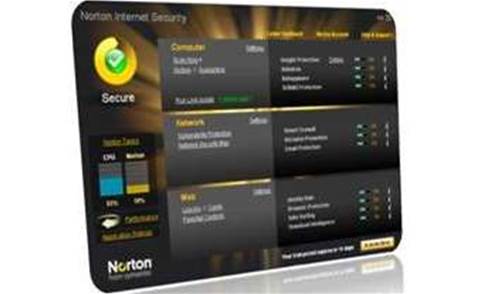Resellers will get another bite of the Symantec cherry in the form of an easy-access Norton backup service when the next version of the anti-virus software is released.
Symantec is merging the code for its products to provide a consistent interface and open new businesses in the cloud and on mobile and electronic devices other than PCs and Macs.
"Certainly, online backup is a paid service, we are offering some trials and a reseller could sell a Norton online backup card," said Symantec Asia-Pacific consumer products manager David Hall.
Norton US product director Dan Nadir said it's an easy cross-sell for resellers when recommending Symantec's products.
"It's an advantage to the reseller because that reseller can say, you can sign up, I'll sell you Norton online backup and, the benefit is, it's integrated directly into the [user interface]," Nadir said.
"And once you have your user [name] and password and plug it in and you'll see all the data in one spot."
Related
He said that a "handful of service-based products" would be released over the next year, mimicking Apple's iTunes model: "We want to make it easy for people from one place to get more detail about those services and not have to go back out to the website".
And Symantec will take its "reputation management" engine - a service that determined the relative legitimacy of a site or file - into areas outside traditional anti-virus and information security such as privacy of mobile devices, starting with the "chatty" Android, Nadir said.
Symantec recently released Norton Connect for the iPhone and Android platforms to enable their users to manage their cloud files from their handsets. And it was releasing Norton Smartphone (Mobile) Security to protect handsets stolen or lost; users can view the handset's location on a website and disable or remotely wipe its contents by sending an email. Similar services existed from Apple and third-party software makers.
He said Symantec was working hard to erase its reputation as a resource hog, streamlining the software so that a PC's performance was unaffected by scanning in the background and other operations.
Although offering a mea culpa for performance degradation under previous Norton versions, Nadir said the software now behaved itself: "Anything that happens on a user's PC we get blamed for".
Symantec has "found ways to squeeze out even more performance so we want smaller memory footprint, faster scan time, faster boot time, faster shut down time all of that is really important to us, our OEM partners and to our users. That was the No. 1 thing that we focused on."
Free and easy beyond the PC
Symantec is also releasing more free Norton applications to ensure "no one was left behind", Hall said. That included a scanner to detect malicious activity on Facebook, a safe domain name service for routing a user's requests to view a website, for instance, and Norton Safe Web Lite that revealed poisoned websites before they infected a user's PC.
The strategy was a carrot to lure users who don't have protection and to improve protection across networks. Nadir said: "We think it's still in our best interests to help them [users] because they're part of the problem."
To raise awareness of the usefulness of the product, the number of threats stymied by the software were located geographically and presented in the dashboard of the next version.
Symantec based its next-generation services on its Shasta platform that delivered the mountain of data to its applications and third parties. It hoped to encourage device makers to use such "telemetry" gathered from more than five billion reputation lookups a day by its 50 million users to soothe the pain of firmware updates and protect against privacy violations.
It worked with Mocana, a company that secured devices such as Bluray players and media servers, to protect against threats migrating from PCs. Symantec viewed the massive store of data it vacuums from its community every day as one of its greatest assets.
Symantec will push its solutions through retail and reseller channels; ISPs would come later.
But a problem identified with its secure DNS service would mean "a few calls would have to be made", Hall said, because unmetered internet services such as the ABC's on iiNet's network must pass through a privileged server or else they were charged to the user.




_(27).jpg&h=142&w=230&c=1&s=1)



.jpg&h=142&w=230&c=1&s=1)




.jpg&w=100&c=1&s=0)







_(1).jpg&q=95&h=298&w=480&c=1&s=1)



